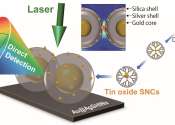Electrochemical reaction powers new drug discoveries
A Cornell-led collaboration is flipping the switch on traditional synthetic chemistry by using electricity to drive a new chemical reaction that previously stumped chemists who rely on conventional methods.








